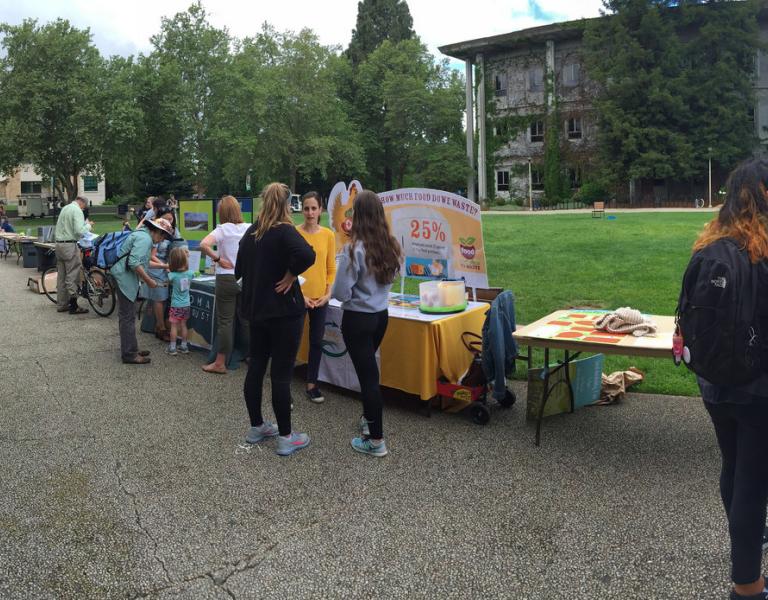Community-Engaged Scholarship
Why Should Faculty do Community-Based Scholarship?
Pew Charitable Trust highlights the value of community-based research for faculty, emphasizing how it connects academic work to real-world issues. This type of research not only generates more relevant insights but also boosts public trust in academia and leads to meaningful, actionable solutions for communities. By moving beyond academic journals, faculty can contribute to positive change at the local level. Key takeaways from Pew’s findings include:
Increased Relevance: Collaborating with local communities allows researchers to better understand and address specific challenges, making their work more impactful.
Building Public Trust: When researchers engage with communities, it shows they are invested in solving real-world problems, which strengthens the public’s faith in academic research.
Policy Impact: Research rooted in community input is more likely to translate into practical policy recommendations and tangible solutions.
Ethical Research: Community-based approaches ensure research is conducted ethically, taking into account the needs and perspectives of those directly affected. In short, community-based research empowers faculty to create meaningful, real-world change that extends far beyond the confines of academic journals.
While there are many forms of community-engaged scholarship, community-based participatory research (CBPR) has had the benefits of evolving out of the others and being the most intentionally reciprocal.
CBPR is research that is conducted as an equal partnership between traditionally trained "experts" and members of a community. In CBPR projects, the community partner participates fully in all aspects of the research process.1 CBPR encourages collaboration of formally trained research partners from any area of expertise, provided that the researcher provides expertise that is seen as useful to the investigation by the community, and be fully committed to a partnership of equals and producing outcomes usable to the community.
Equitable partnerships require sharing power, resources, credit, results, and knowledge, as well as a reciprocal appreciation of each partner's knowledge and skills at each stage of the project, including problem definition/issue selection, research design, conducting research, interpreting the results, and determining how the results should be used for action.
CBPR differs from traditional research in many ways. One of the principal ways in which it is different is that instead of creating knowledge for the advancement of a field or for knowledge's sake, CBPR is an iterative process, incorporating research, reflection, and action in a cyclical process.
According to the WK Kellogg Foundation Community Health Scholars Program, Community-Based Participatory Research (CBPR) is a “collaborative approach to research that equitably involves all partners in the research process and recognizes the unique strengths that each brings. CBPR begins with a research topic of importance to the community, and has the aim of combining knowledge with action and achieving social change to improve (health) outcomes and eliminate (health) disparities.”
There is evidence that the most learning occurs, and the best knowledge is generated when students are involved. Research by the Pew Partnership for Civic Change and Campus Compact shows that CBPR works best when integrated into academic coursework. This combination of CBPR and service-learning pedagogies increases student learning and greatly increases sustainability and outcomes of community work.
1Minkler and Wallerstein, ed. (2008). Community-Based Participatory Research for Health: From Process to Outcomes. This is available in the CCE library. Contact [email protected] to review it.
Action research can be described as a family of research methodologies that pursue action (or change) and research (or understanding) at the same time.
"In its simplest form: Action research is a way of generating research about a social system while simultaneously attempting to change that system. While conventional social science aims at producing knowledge about social systems (some of which may eventually prove useful to those wishing to effect change), action research seeks both to understand and to alter the problems generated by social systems."1
Principles of action research:
- Use of a cyclic or spiral process, which alternates between action and critical reflection and in the later cycles, continuously refining methods, data and interpretation in the light of the understanding developed in the earlier cycles.
- It is thus an emergent process that takes shape as understanding increases; it is an iterative process that converges towards a better understanding of what happens.2
Community-Based Research is in the community and benefits the community. Community-based research takes place in community settings and involves community members in the design and implementation of research projects, demonstrating respect for the contributions to success that are made by community partners, as well as respect for the principle of "doing no harm" to the communities involved.
In order to achieve these goals, the following principles should guide the development of research projects involving collaboration between researchers and community partners, whether the community partners are formally structured community-based organizations or informal groups of individual community members.
Principles of Community-Based Research:
- CBR is a collaborative enterprise between researchers (professors and/or students) and community members. It engages university faculty, students and staff with diverse partners and community members.
- CBR validates multiple sources of knowledge and promotes the use of multiple methods of discovery and of dissemination or the knowledge produced.
- CBR has as its goal: social action and social change for the purpose of achieving social justice.
- In most forms, it is also participative (among other reasons, change is usually easier to achieve when those affected by the change are involved) and it's qualitative.3
1Troppe, Marie. Participatory Action Research: Merging the Community and Scholarly Agendas. Providence: Campus Compact, 1994.
Contact [email protected] to access this in the CCE Resource Library.
2Winter, Richard. Some principles and procedures for the conduct of action research. In Ortrun Zuber-Skerritt, editor, New Directions in Action Research. Routledge, 1st edition, August 1996.
3Community-Based Research and Higher Education: Principles and Practices by Kerry Strand San Francisco, CA: Jossey-Bass, c2003.
Contact [email protected] to request a copy.
Thank you for your interest in community-engaged creative activity. While Community-Based Participatory Research is the most studied form of community-engaged scholarship, community-engaged creative activity is also valuable. Community organizations need faculty support with writing and the arts. Additionally, faculty can get their students involved with community partners. The CCE is here to help you as you explore and deepen your work. Please contact [email protected] to set up a consultation.



